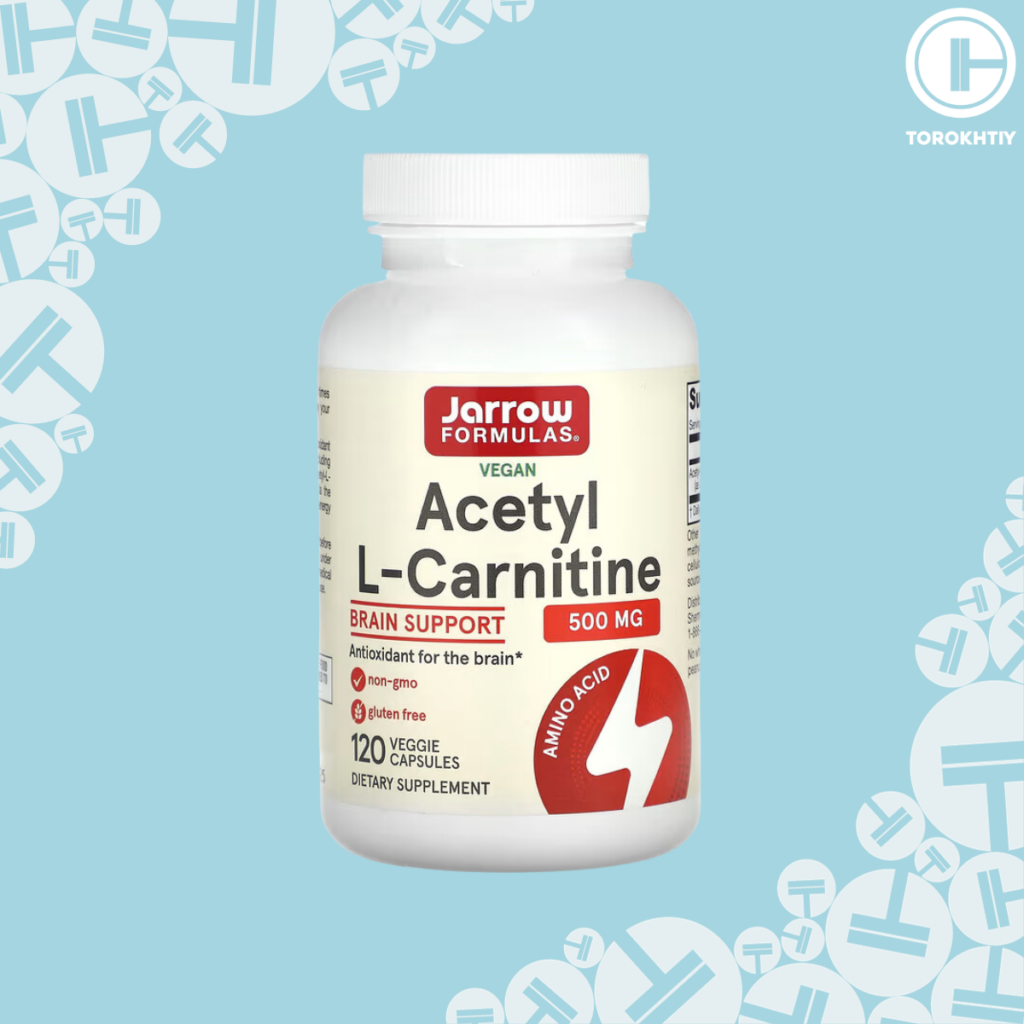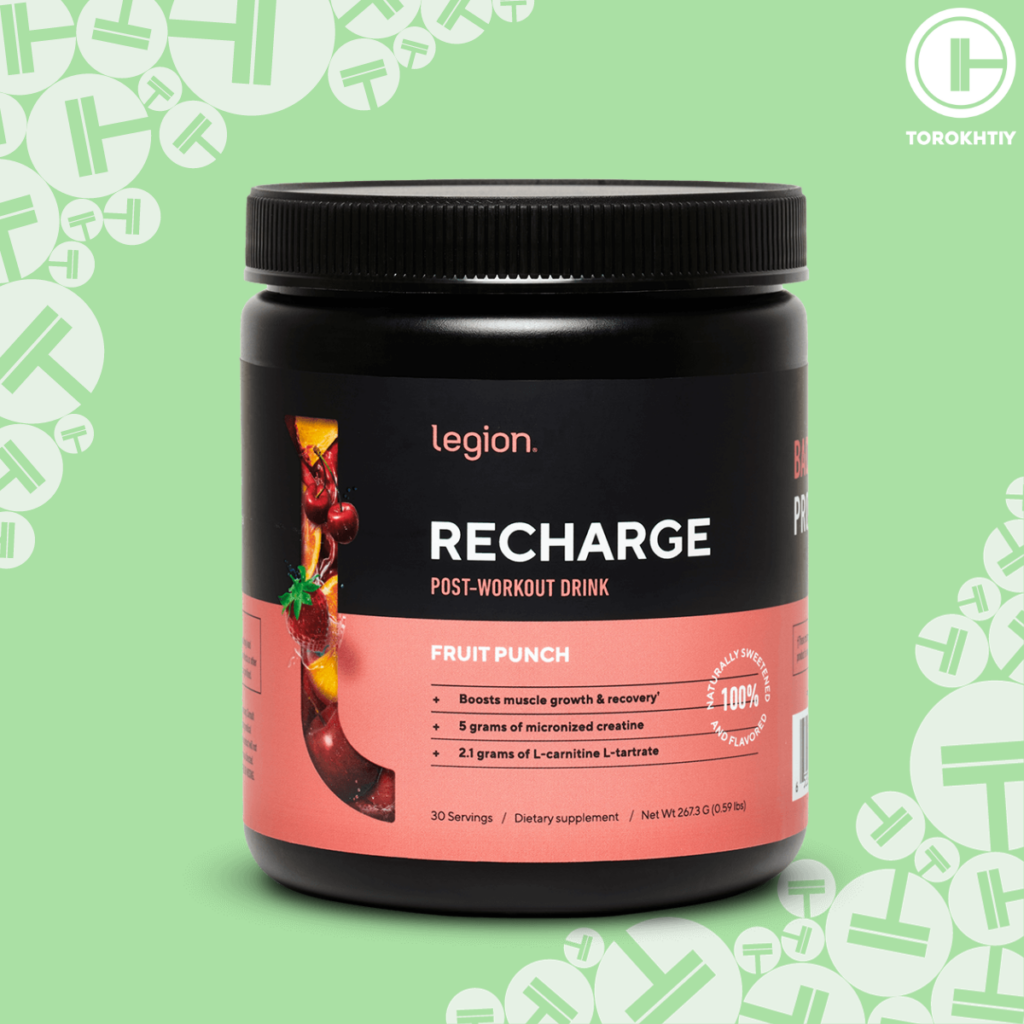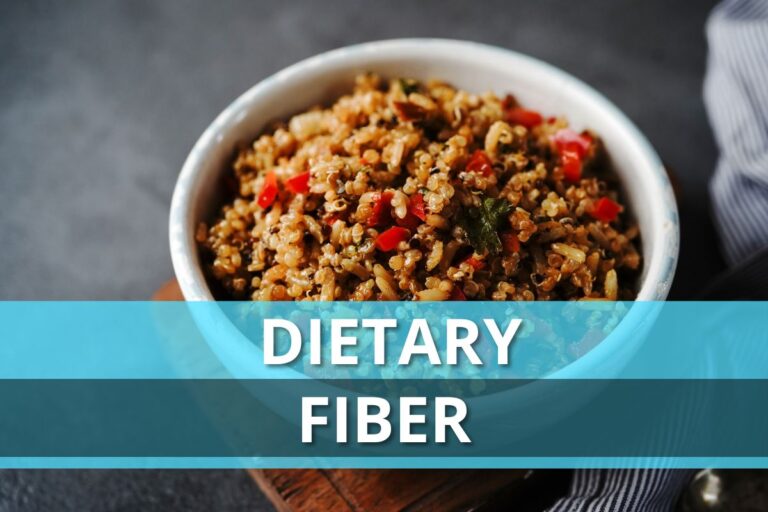Can I Take L-Carnitine Without Exercise? L-Carnitine for Health
Can I take L-carnitine without exercise? L-carnitine is a conditionally essential amino acid. This means that when the body is deficient (either due to a genetic disorder, inadequate intake, or increased renal excretion) it should be taken. Otherwise, the general healthy population does not need to take it unless they are active as L-carnitine does support recovery from exercise.
Can I take L-carnitine without exercise? L-carnitine can be taken without exercise as it would benefit those with certain diseases owing to its potential ability to support a variety of health conditions. For instance, it may mitigate symptoms for certain heart conditions, support glycemic control, offer neuroprotection, increase androgen receptor density in muscle cells and improve sperm quality among men.

Can I Take L-Carnitine Without Exercise?
L-carnitine is a naturally occurring amino acid that is key for transporting fatty acids into the mitochondria of cells, where they can be used as a source of energy.
Most of the benefits pertaining to L-carnitine are related to enhanced exercise recovery. However, taking L-carnitine without exercising could serve other purposes, such as:
- help the body use fat for energy more efficiently
- can help improve symptoms in individuals with angina and heart failure; and
- offer cognitive benefits.
In particular, we discuss the role of L-carnitine for peripheral artery disease, improving blood pressure, improving glycemic control, providing neuroprotection, and improving sperm quality. There is a chance that LCLT can increase androgen receptor density in muscles.
1. Peripheral Artery Disease
Peripheral artery disease (PAD), a condition characterized by the narrowing of arteries in the legs, arms, stomach, and head due to a build-up of fatty deposits, can lead to reduced blood flow. Propionyl L-carnitine, a derivative of L-carnitine, has been demonstrated to be indicated for individuals with PAD.
It appears to:
- improve blood flow by improving the utilization of fatty acids for energy, which can help reduce muscle fatigue, increase oxygen supply to the affected limbs, and improve walking capacity
- reduce symptoms, such as leg pain (claudication), and improve the walking distance before the onset of pain; and
- enhance exercise tolerance, allowing individuals to walk longer distances before experiencing discomfort.

2. Blood Pressure
A systematic review and meta-analysis of randomized controlled trials looking at the effects of L-carnitine supplementation on blood pressure revealed that L-carnitine supplementation decreased diastolic blood pressure levels in participants with overweight and obesity.
However, some randomized controlled trials have shown that L-carnitine has no effects on blood pressure in patients with type 2 diabetes.
3. Glycemic Control
In a systematic review and meta-analysis of 41 randomized controlled trials, studies using doses of 0.25–4 grams daily of L-carnitine for 2–52 weeks found that supplemental L-carnitine improved markers of glycemic control. These included e.g. reduction in fasting blood glucose.
These beneficial effects were stronger for longer durations (≥12 weeks) and higher doses (≥2 grams) of supplementation and in participants with obesity, diabetes, or elevated levels of fasting blood glucose (≥100 mg/dL) at baseline.
4. Possible Neurophysiological Effects
One of the derivatives of L-carnitine, acetyl-L-carnitine, may offer neuroprotection for related disorders including hypoxia-ischemia, traumatic brain injury, Alzheimer’s disease, and conditions that injure the central or peripheral nervous system.
Particularly for both L-carnitine and acetyl-L-carnitine, they have been shown to prevent cell death in animal models of brain injury among the adult, pediatric, and neonatal populations.
More research is required in humans although there is some evidence supporting the use of acetyl-L-carnitine to treat mild cognitive impairment and mild Alzheimer’s disease. At this time, supplementation is mostly beneficial in cases of a pre-existing disease associated with L-carnitine deficiency.
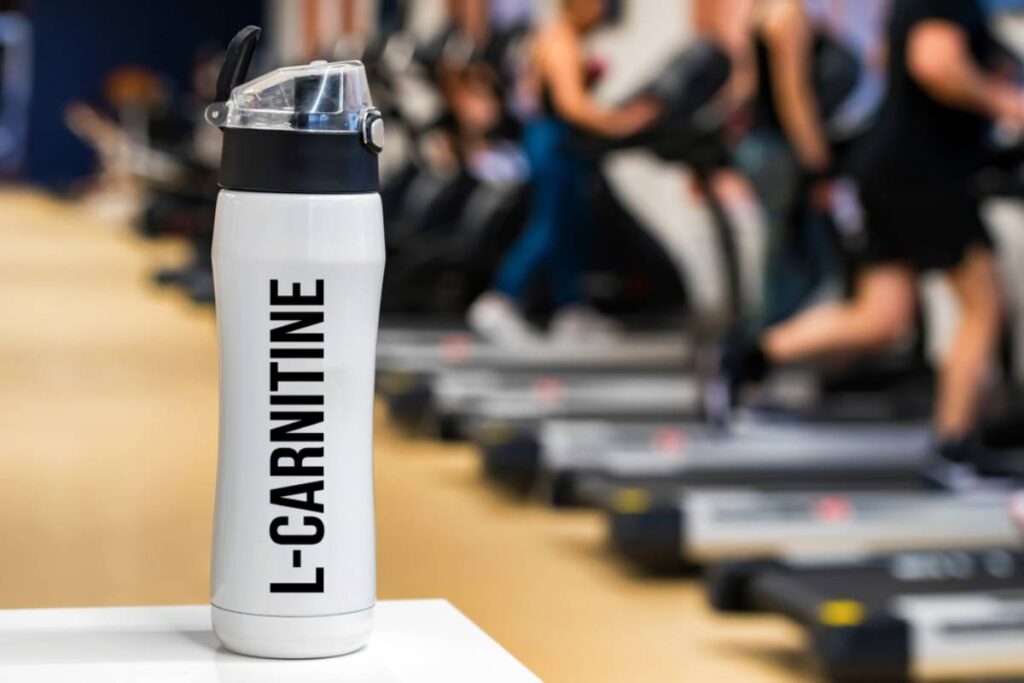
5. Improve Sperm Quality
Oxidative stress and reactive oxidative species (ROS) have been known to damage sperm quantity and quality, leading to infertility among men. Carnitine appears to counter the effects of ROS.
A review of studies have demonstrated that both L-carnitine and acetyl-L-carnitine improve sperm motility and the production of normal-shaped sperm cells, which may benefit male fertility although it should be noted that sperm count and pregnancy rates were not affected.
What Form of Carnitine Might Work Best for Health-Related Purposes?
The most common and widely studied form of carnitine for various health-related purposes is L-carnitine. It is the biologically active form of carnitine. L-carnitine is available in various forms, including: L-carnitine L-tartrate, acetyl-L-carnitine (ALCAR), and propionyl-L-carnitine.
As can be seen above, most studies evaluating carnitine for health-related purposes have been conducted using acetyl-L-carnitine as well as propionyl L-carnitine.
Acetyl-L-carnitine may support brain health, cognitive function, and have a role in conditions like Alzheimer’s disease.
Propionyl-L-carnitine may support cardiovascular health. Peripheral artery disease (PAD) appears to be connected with secondary carnitine deficiency. L-carnitine may help improve blood flow and reduce symptoms, so individuals may benefit from supplementation.
L-carnitine L-tartrate supplementation among healthy adults for 5 weeks have been shown to be beneficial for improving recovery and reducing fatigue following exercise.
Jarrow Formulas Vegan Acetyl L-Carnitine provides 500mg of acetyl-L-carnitine in a one capsule serving. The standard dose is between 500–2000mg per day. Therefore, taking one capsule per day to start would be sufficient.
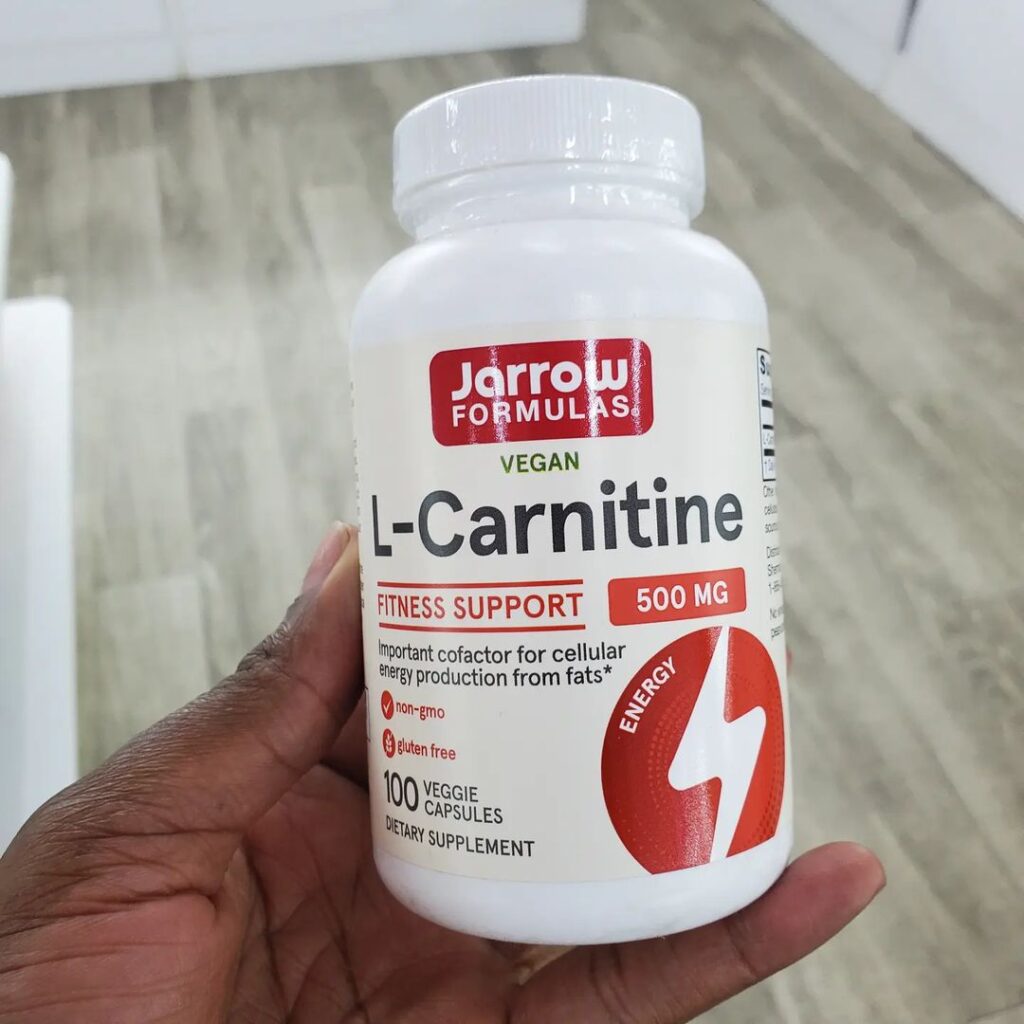
It is free of common allergens including wheat, gluten, soybeans, dairy, egg, fish/shellfish, peanuts/tree nuts, and sesame. This product has been approved by ConsumerLab, which tests products to ensure their quality.
Legion Athletics offers a post-workout drink mix containing a L-carnitine L-tartrate combination. Research has shown that combining L-carnitine and L-tartrate can improve recovery by reducing exercise-induced muscle damage and soreness, and improving muscle repair.

The clinically effective dose is 1–2g. This product provides 2.1g per 1 scoop serving.
FAQ
Can You Take L-Carnitine Anytime?
For best results, it’s recommended to take L-carnitine before meals and/or post-workout. Taking it about 30–60 minutes before your workout allows time for the supplement to be absorbed and potentially helps improve energy utilization during physical activity.
How to Use L-Carnitine for Best Results?
The best results for using L-carnitine are related to exercise. For L-carnitine, L-carnitine L-tartrate, or propionyl-L-carnitine, when taken post-workout with a meal that contains carbohydrates, the carbohydrates increase insulin levels, which can increase amounts of L-carnitine that enter muscle cells. For general health purposes, a daily dose of 2g has been shown to be beneficial from studies.
Do You Need to Take L-Carnitine Everyday?
Carnitine is a conditionally essential nutrient when an individual cannot synthesize adequate amounts on their own. The body needs about 15mg/day of carnitine from the diet and endogenous synthesis by the liver and kidneys.
Absorption from supplemented L-carnitine is about 14–18%, which is much less than that of dietary L-carnitine. Therefore, in order to meet basic needs, supplementation is not necessary for daily consumption.
However, to achieve the therapeutic benefits of supplementation, as with other supplements, consistency is key to truly observe the benefits and results.
Conclusion
L-carnitine confers both health- and exercise-related benefits, thereby allowing you to take it without exercise in certain conditions or with exercise. However, it is important to note that data from studies are mixed due to different forms and dosages of L-carnitine being studied.
That being said, a daily dose of exercise will result in more health benefits than any supplement can provide. To get the best that L-carnitine has to offer – use it after exercise. Have you tried L-carnitine supplements in the past? Which one(s) and what effects did you notice? Share with us in the Comments section!
Also read:
- L Citrulline vs Citrulline Malate
- Foods High in L-Citrulline
- Glutamine for Muscle Soreness
- Glutamic Acid vs Glutamine
- When to Take L-Glutamine for Weight Loss
- Acetyl L Carnitine or L Carnitine Tartrate
- L Glutamine or L Carnitine
- Best L-Citrulline Powder
- Best L Glutamine Powder
References:
- William J Kraemer 1, Barry A Spiering, Jeff S Volek, Nicholas A Ratamess, Matthew J Sharman, Martyn R Rubin, Duncan N French, Ricardo Silvestre, Disa L Hatfield, Jaci L Van Heest, Jakob L Vingren, Daniel A Judelson, Michael R Deschenes, Carl M Maresh “Androgenic responses to resistance exercise: effects of feeding and L-carnitine” National Library of Medicine, 2006 Jul; 38(7):1288-96.
- Belen Tama,1 Stephanie P Fabara,corresponding author2 Daniel Zarrate,3 and Anas Anas Sohail “Effectiveness of Propionyl-L-Carnitine Supplementation on Exercise Performance in Intermittent Claudication: A Systematic Review” National Library of Medicine, 2021 Aug; 13(8): e17592.
- Moein Askarpour 1, Amir Hadi 2 3, Azadeh Dehghani Kari Bozorg 1, Omid Sadeghi 1, Ali Sheikhi 1, Maryam Kazemi 4, Ehsan Ghaedi “Effects of L-carnitine supplementation on blood pressure: a systematic review and meta-analysis of randomized controlled trials” National Library of Medicine, 2019 Oct;33(10):725-734.
- Mohammad Zamani 1, Naseh Pahlavani 2 3, Mahlagha Nikbaf-Shandiz 4, Niloufar Rasaei 5, Rasool Ghaffarian-Ensaf 6, Omid Asbaghi 7 8, Farideh Shiraseb 5, Samira Rastgoo “The effects of L-carnitine supplementation on glycemic markers in adults: A systematic review and dose-response meta-analysis” National Library of Medicine, 2023 Jan 10:9:1082097. doi: 10.3389/fnut.2022.1082097. eCollection 2022.
- Gustavo C. Ferreira, Mary C. McKenna “L-Carnitine and acetyl-L-carnitine roles and neuroprotection in developing brain” National Library of Medicine, 2017 Jun; 42(6): 1661–1675.
- Stuart A Montgomery 1, L J Thal, R Amrein “Meta-analysis of double blind randomized controlled clinical trials of acetyl-L-carnitine versus placebo in the treatment of mild cognitive impairment and mild Alzheimer’s disease” National Library of Medicine, 2003 Mar;18(2):61-71.
- Shen Chuen Khaw 1, Zhen Zhe Wong 2, Richard Anderson 3, Sarah Martins da Silvа “l-carnitine and l-acetylcarnitine supplementation for idiopathic male infertility” National Library of Medicine, 2020 Dec 23;1(1):67-81.
Why Trust Us?
With over 20 years in Olympic Weightlifting, our team does its best to provide the audience with ultimate support and meet the needs and requirements of advanced athletes and professional lifters, as well as people who strive to open new opportunities and develop their physical capabilities with us.
By trusting the recommendations of our certified experts in coaching, nutrition, dietology, and sports training programming, as well as scientific consultants, and physiotherapists, we provide you with thorough, well-considered, and scientifically proven content. All the information given in the articles concerning workout programming, separate exercises, and athletic performance, in general, is based on verified data. We ensure that you can rely on our professionals’ pieces of advice and recommendations that can be treated as personalized ones which will benefit you and fully meet your needs.
The product testing process is described in more detail here
Author: Jacek Szymanowski
Certified Nutritionist,
M.Sc.Eng. Biotechnology
Performance Architect,
Strength and Conditioning Specialist
With over 30 years of fighting experience, specialization in nutrition coaching for athletes, and expertise in metabolic health and dietary strategies, Jacek offers a comprehensive approach to optimizing your performance and well-being. Backed by a Master of Science degree in Biotechnology, Jacek remains at the forefront of scientific advancements, ensuring that his coaching is always evidence-based and up-to-date.

